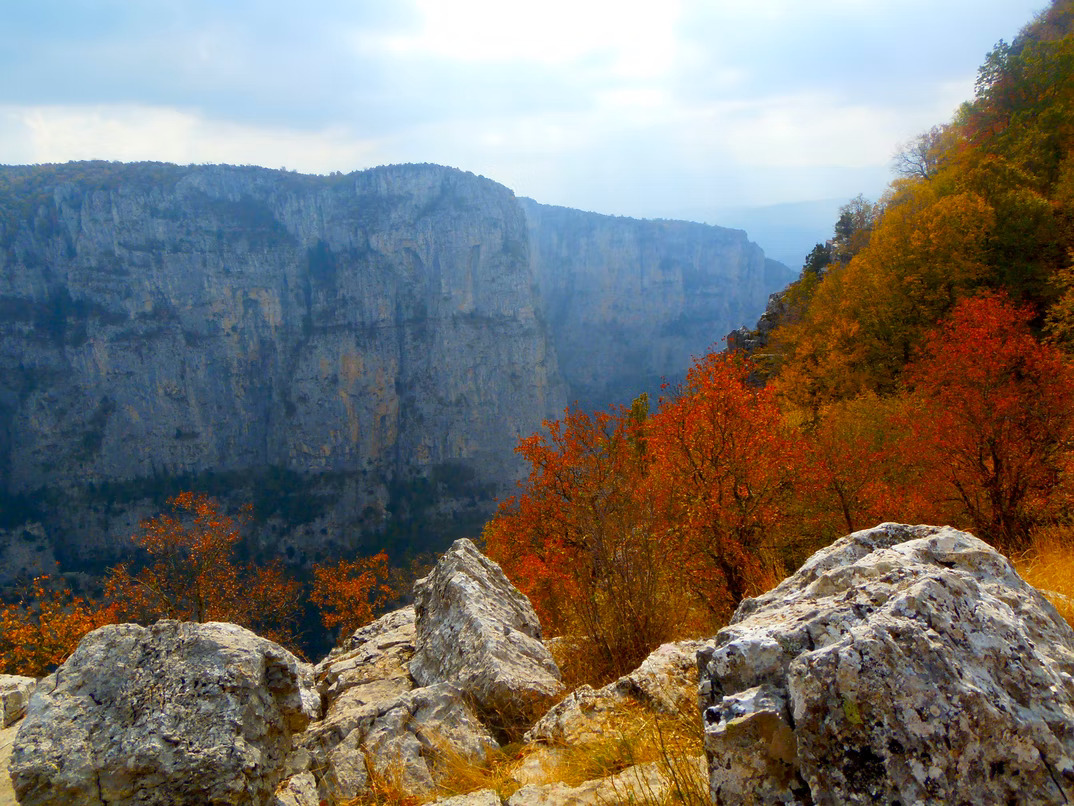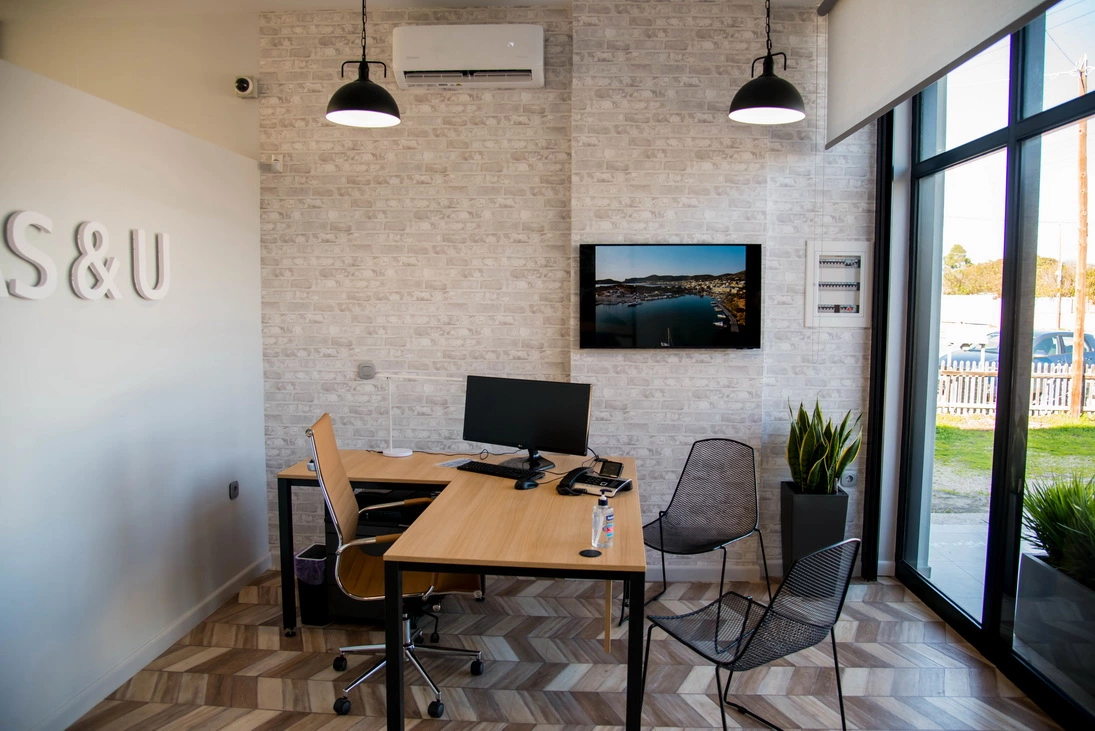Becoming a digital nomad and working remotely from Greece
- Do you want to travel, but never had the chance because of your work?
- Do you feel like you spend too much of your life in one place?
- Are you working remotely and thinking about traveling?
- Are you dreaming of working nearby the sea?
Then maybe you should consider becoming a digital nomad. Working while traveling might be ideal for some, but tiresome for others. The life of a digital nomad is not always as dreamy as it may sound. However, planning ahead a little can make it a lot easier and enjoyable. This article will give you some insightful tips on being a digital nomad. What is more, we will discuss specifically the digital nomad life in Greece.

WHAT IS A DIGITAL NOMAD?
To begin with, let’s understand what the term refers to. Digital nomads are people who work independently of location, using technology to communicate with their colleagues and clients. Simply put, they are people who work from their laptops, tablets, or phones, since their office presence is not really required. This way, they have the option to lead a nomadic lifestyle, traveling from place to place, either domestically or abroad.
Some digital nomads prefer to be constantly on the move, sometimes even living in their van or RV. Others travel by plane, train or ship, living in hotels or Airbnbs and plan before-hand where they will spend their time in. Their office desk is anyplace that provides Wi-Fi access, such as hotel rooms, hostels, coffee shops, libraries, co-working spaces etc.
With the pandemic, working remotely has been established as a norm in many working environments. Consequently, working from home extended to a majority of office jobs, which in turn has led to living as a digital nomad becoming a trend. Here are some examples of the most popular digital nomad jobs:
- Web Designer
- Digital Marketer
- Graphic Designer
- Customer Support
- Software Developer
- Blogger
- Youtuber
- Writer
- Specialist Consultant
- SEO Specialist
- Online Teaching
- Copywriter
- Data Scientist
Nowadays, the list can go on forever.
In general, any job that can be done through a laptop, could possibly enable a digital nomad lifestyle. If you are thinking about becoming a nomad, a quick search online will help you find a plenty of websites with remote work listings.

BENEFITS OF BECOMING A DIGITAL NOMAD
Digital nomads are by default people who like to travel, who like to chase new experiences and who like to explore. If you are not into adventures, you are probably not fit for such a lifestyle. But if you are, there are a lot of benefits for you in the life of a digital nomad:
- Seeing new places, constant change of scenery
- Learning new skills and languages
- Meeting new people
- Experiencing new cultures and traditions
- Freedom from office environment and office dependencies
- Flexibility in movement
- Control over your work and leisure time
This lifestyle is not always a walk in the park, however. Traveling all the time and being in unfamiliar environments can often present difficulties. Nevertheless, if you are new to the nomad life, following the next tips will help you avoid the most common mistakes, prevent unfortunate situations before the occur and overcome most difficulties.
10 TIPS ON LIFE AS A DIGITAL NOMAD
1. Do thorough research of your next destination before you reach it. It is very helpful to have some information on the place you are going to live for the next amount of time, so that you can be prepared. The weather, for instance, can surprise you unpleasantly oftentimes.
2. Make sure you have access to the internet and all of the necessary tools for your work. This is not something you want to be dealing with every time you move somewhere new.
3. Pick your luggage carefully. Extra weight may prove a burden, so try to plan well and not carry any unnecessary items. A weight to benefit analysis might be useful here!
4. Book your accommodation beforehand. Do not take your chances ending up on the street, or somewhere you cannot really afford.
5. Get travel insurance. You do not want to be hanging in case you have an accident, or need medical assistance. Research for a good travel insurance deal, that will give you coverage for all the places you want to visit.
6. Look for digital nomad communities in the places you visit. The more popular the destination, the stronger its nomad community will be. Connect with the community to make friends, get useful information and do not be afraid to ask for help. Getting in touch with people leading a similar lifestyle to yours, will be useful in many cases, especially in unfamiliar environments. Nomadlist is an excellent resource for this!
7. Get digital banking. Being able to manage your finances from anywhere in the world, is something you are definitely going to need while traveling. There is a variety of digital banking options, make sure you choose what is more convenient for your needs. Always have backup accounts and credit cards to ensure nothing goes wrong.
8. Have an emergency fund. Keep some money on the side (preferably in cash) in case something happens. Last minute arrangements are usually very expensive. You would not want to be stranded somewhere without any money.
9. Make connections to the places you visit, and keep in touch with them! It may come very handy to have people you know all over places. You never know when you might need them. You may decide to move permanently, for example, to one of the places you pass by while traveling. It is always good to have friends!
10. Check if you are eligible for a Digital Nomad Visa, if the country offers one. Most digital nomads issue tourist visas, since their legal status is often a gray area. Better be in the know, you would not want to have trouble with tax and immigration in a foreign country.
BECOMING A DIGITAL NOMAD IN GREECE
LOCATION
Greece is known for its diverse natural landscapes. Its countryside offers an infinite range of natural beauties, from mountainous to near sea areas, which render it a great option for trips and outdoor activities all over the country. If you are a nature enthusiast, you can enjoy numerous different destinations to go camping, hiking, trekking, canyoning, skiing, rock climbing, rafting and all the mountain sports, as well as surfing, jet-skiing, snorkeling and all the sea sports all around Greece’s 15,000 km coastline.
This diversity of landscapes also makes Greece an ideal destination all year round. It provides the opportunity to change scenery depending on the season. For instance, in the winter you can crawl up near a ski resort and enjoy the life in the highlands, whereas in the summer you may go island hopping in the Ionian, or the Aegean’s endless archipelago. Greece’s Mediterranean climate offers pleasant, cool winters and hot (but not too hot) summers. Remember, 35°C in Greece is extremely pleasant compared to 35°C in the tropics due to the difference in relative humidity!

Furthermore, if you are an inner-city kind of person, Thessaloniki and Athens are some of the liveliest European cities to experience a vibrant urban lifestyle with somewhere to go any day of the week! On the other hand, if you prefer to stay away from the metropolises and closer to clean air, your rural lifestyle options are essentially countless. Crete is an all-inclusive preferable option, with an abundance of villages, small towns and large cities. Rhodes, Patra and Santorini are also very common choices.
COST OF LIVING
Greece’s cost of living is relatively low compared to other European countries. Consumer price levels are generally below the EU’s average, but supermarket prices might surprise you due to longer supply chains and a 24% sales tax (in most places). Either way, it will most likely feel from affordable to cheap, depending on where you come from.
ACCOMMODATION
Airbnbs, hostels and motels are always an option in the larger part of the country, but it is not suggested as an option for longer stays unless you can get a special arrangement. Remember that during the summer season, short term rental prices increase multiple times. Long-term rentals are significantly lower than most European countries. For your housing needs, AS and U is your trustworthy assistant (check out our home page at: asandyou.com).
FOOD
Greece’s Mediterranean diet is well known and well trusted worldwide. You can find a wild range of traditional delicacies around the country, depending on location and cultural heritage. Apart from the traditional cuisine, the Greek gastronomy scene has been revolutionized in the past years, with a lot more growth still on course. You will find that eating out or ordering delivery is “value for money”, to the point that you will probably quit cooking for yourself. Also, you might be surprised by the rich taste of fruits and vegetables, depending on where you are coming from.

CULTURE AND LIFESTYLE
From ancient monuments, museums, theaters, art exhibitions and events, Greek history and folklore is alive and present in everyday life. Every city has its own background, omnipresent in its historical marks and remnants. There is no shortage of cultural outlets and sightseeing, if you are into exploring them.
The Greek lifestyle is considered to be a “laid-back”one, meaning that it is less stressful than most developed countries. You could say there is less of a societal expectation to be productive (which might explain a lot). Nightlife is rich and diverse in the large cities and islands (during the summer), and more relaxed in the countryside. Most Greeks are decent English speakers, but even those who do not speak the language so well will do their best to communicate with you. In general, Greeks will make you feel safe and welcome.
SAFETY AND DRIVING
Greece is a safe European country with only a few “dangerous” neighbourhoods in central Athens. There is some petty street crime in tourist hot spots as well.
Although aggressive driving has been reduced significantly in the past 20 years, you should always be alert, particularly until you feel comfortable with the driving norms of the country.
IMMIGRATION AND TAX
In 2021 the Greek government introduced the Digital Nomad Visa for non-EU nationals who wish to live in Greece and work remotely with employers or clients outside Greece. Non-EU digital nomads can apply for a residence permit at the Ministry of Migration and Asylum, as long as they meet the basic requirement: proof of income valued at least 3,500 € per month and documentation validating their employment status. The Digital Nomad Visa is valid for 12 months and can be renewed.
Of course, EU passport holders are permitted to come any time without any visa arrangements.
According to Greek tax law, there is a limit of 183 days in any 365-day period where if you spend more time in the country, you are required to file a tax return. This is required regardless of whether you are normally taxed elsewhere. The majority of countries worldwide have similar rules. Even though most digital nomads do not comply with these rules as they are nearly impossible to enforce, we strongly recommend letting your employer know and/or seeking specialist accounting advice should you come close to the limit.
IN CONCLUSION
If you feel it is time for your journey to begin, do not hold back anymore. Pack up and get out there! The life of a digital nomad is one of adventure and exploration, so you need to be organised. Follow the tips above and you will not need to worry. Do not miss out on one of the most popular digital nomad destinations worldwide! For more information on getting a more permanent residency in Greece, you can check out our Golden Visa for Greece guide. And remember, for your housing and property needs, AS and U is at your service!
We are located at the beautiful seaside town of Porto Rafti, only a 15-min drive from Athens International Airport. We love the area, so feel free to contact us anytime, even if it is just to discuss. Not convinced? Read more about what it’s like to live in Porto Rafti.

